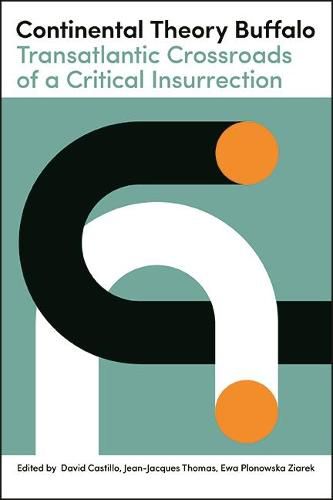Readings Newsletter
Become a Readings Member to make your shopping experience even easier.
Sign in or sign up for free!
You’re not far away from qualifying for FREE standard shipping within Australia
You’ve qualified for FREE standard shipping within Australia
The cart is loading…






Continental Theory Buffalo is the inaugural volume of the Humanities to the Rescue book series, a public humanities project dedicated to discussing the role of the arts and humanities today. This book is a collaborative act of humanistic renewal that builds on the transcontinental legacy of May 1968 to offer insightful readings of the cultural (d)evolution of the last fifty years. The volume contributors revisit, reclaim and reassess the revolutionary legacy of May 1968 in light of the urgency of the present and the future. Their essays are effective illustrations of the potential of such interpretive traditions as philosophy, literature and cultural criticism to run interference with (and offer alternatives to) the instrumentalist logic and predatory structures that are reducing the world to a collection of quantifiable and tradeable resources. The book will be of interest to cultural historians and theorists, media studies scholars, political scientists, and students of French and Francophone literature and culture on both sides of the Atlantic.
$9.00 standard shipping within Australia
FREE standard shipping within Australia for orders over $100.00
Express & International shipping calculated at checkout
Continental Theory Buffalo is the inaugural volume of the Humanities to the Rescue book series, a public humanities project dedicated to discussing the role of the arts and humanities today. This book is a collaborative act of humanistic renewal that builds on the transcontinental legacy of May 1968 to offer insightful readings of the cultural (d)evolution of the last fifty years. The volume contributors revisit, reclaim and reassess the revolutionary legacy of May 1968 in light of the urgency of the present and the future. Their essays are effective illustrations of the potential of such interpretive traditions as philosophy, literature and cultural criticism to run interference with (and offer alternatives to) the instrumentalist logic and predatory structures that are reducing the world to a collection of quantifiable and tradeable resources. The book will be of interest to cultural historians and theorists, media studies scholars, political scientists, and students of French and Francophone literature and culture on both sides of the Atlantic.